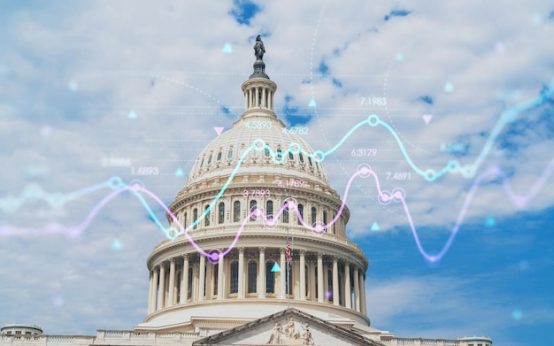Legislative efforts to protect and expand voting rights in America face significant challenges, including political resistance, discriminatory practices, and misinformation, while grassroots movements and technology play essential roles in advocating for reform.
Legislative efforts to protect and expand voting rights are more important than ever in our rapidly changing political landscape. Have you ever thought about how these efforts shape our democracy? Let’s explore the implications and significance together.
Understanding voting rights legislation
Understanding voting rights legislation is essential for ensuring that every citizen has a voice in the democratic process. This legislation impacts how we vote and who has access to voting. Exploring this topic helps us recognize the significance of laws that protect our right to participate in elections.
History of Voting Rights Legislation
The journey toward establishing comprehensive voting rights has been long and complex. Several important amendments and acts have played a crucial role.
- The 15th Amendment (1870) prohibited denying the right to vote based on race.
- In 1920, the 19th Amendment granted women the right to vote.
- The Voting Rights Act of 1965 aimed to eliminate racial discrimination in voting.
- More recent laws have sought to improve voting access and security.
As we delve deeper, it’s important to consider how these laws evolve and adapt to societal changes. Legislation often reflects the values and priorities of a given time period, making it essential to stay informed.
Current Legal Landscape
Today, there are ongoing debates about voting rights legislation. Some states have introduced laws aimed at restricting access to voting, citing concerns such as election security. Others are working to expand access through measures like automatic voter registration and early voting.
These discussions are vital because they influence how individuals engage with the electoral process. As people become more aware of the rules governing voting, they can better advocate for their rights.
It’s also important to recognize that many organizations are fighting to protect voting rights. They work hard to raise awareness and challenge laws that may disenfranchise voters. Collaboration between citizens, activists, and lawmakers is crucial for a healthy democracy.
The Role of Advocacy Groups
Advocacy groups play a crucial role in shaping legislation related to voting rights. They help educate the public and push for changes that make voting more accessible.
- Groups like the ACLU and NAACP fight against discriminatory practices.
- They provide resources for voters to understand their rights.
- These organizations mobilize citizens to participate in advocacy efforts.
- Public awareness campaigns are designed to highlight inequities in the voting process.
As efforts to understand voting rights legislation continue, it’s clear that staying informed is key. Knowledge about the laws governing voting helps individuals take charge of their democratic rights and responsibilities.
Key historical milestones in voting rights
Key historical milestones in voting rights have shaped the way we understand participation in our democracy. These events mark progress toward ensuring that every individual has a voice in how they are governed.
The 15th Amendment
Ratified in 1870, the 15th Amendment prohibited the federal and state governments from denying citizens the right to vote based on race. This changed the landscape for African American men, allowing them to exercise their constitutional rights.
However, it did not eliminate all barriers to voting. Many states enacted laws that created new obstacles, such as literacy tests and poll taxes, which disenfranchised countless voters.
The Suffrage Movement
The early 20th century saw the rise of the women’s suffrage movement. Activists fought tirelessly for women to gain the right to vote, culminating in the ratification of the 19th Amendment in 1920. This was a monumental victory, ensuring that women could participate equally in elections.
Despite this progress, challenges persisted as many states still found ways to exclude women of color and those from poor backgrounds through discriminatory practices.
The Voting Rights Act of 1965
A major turning point in the fight for voting rights was the passage of the Voting Rights Act in 1965. This landmark legislation aimed to eliminate various barriers that prevented African Americans from voting. It prohibited discriminatory practices and provided federal oversight in jurisdictions with a history of voter suppression.
- Monitoring and protection of voter registration in specific areas.
- Immediate removal of literacy tests.
- Empowerment of federal officials to enforce voting rights.
The Act significantly increased voter registration and participation among African Americans, particularly in the South, marking a crucial step toward equality in the electoral process.
Recent Developments
In recent years, several states have introduced laws that some argue roll back the protections established by the Voting Rights Act. These changes spark debates about the ongoing relevance of historical milestones in voting rights.
As citizens, understanding these key historical events is essential. They remind us of the struggles endured to secure our right to vote and the importance of safeguarding these rights for future generations.
Current legislative actions and debates

Current legislative actions and debates surrounding voting rights are crucial in shaping the democratic landscape. Various proposals are being introduced, analyzed, and debated across the country. As communities engage in discussions, it is essential to understand the implications of these efforts.
Legislation to Expand Access
Recently, many states have proposed laws aimed at expanding access to voting. These measures seek to encourage higher voter participation and ensure that all eligible individuals can cast their ballots.
- Automatic voter registration allows eligible citizens to be registered without needing to apply actively.
- Extended early voting periods help reduce long lines and waiting times on Election Day.
- Mail-in voting options increase convenience, especially for those unable to reach polling places.
Such initiatives are designed to empower voters and create a more inclusive process. However, these proposals often face challenges and opposition.
Debates on Voter ID Laws
One of the hottest debates involves voter ID laws. Proponents argue that these laws prevent fraud and increase election integrity. Critics, on the other hand, say that they disproportionately affect marginalized groups.
Understanding both sides of the argument is key. Some states have enacted strict ID requirements, while others have opted for a more flexible approach. This divergence illustrates the ongoing discussions about how to balance security and accessibility in voting.
Political Influence and Partisan Perspectives
The political atmosphere also heavily influences legislative actions. Different parties have varying perspectives on voting rights. This partisanship can complicate discussions, leading to gridlock in Congress and state legislatures.
As lawmakers debate these issues, public opinion plays a significant role. Advocacy groups mobilize citizens, encouraging them to voice their concerns and preferences regarding voting rights. Grassroots campaigns and activism become vital in shaping the conversation.
Remaining aware of current legislative actions and debates helps us understand our rights and responsibilities as voters. Engaging in these discussions can lead to more informed citizens and a stronger democracy.
Challenges to voting rights expansion
Challenges to voting rights expansion are significant obstacles in the ongoing fight for an equitable electoral process. Despite progress, various factors hinder efforts to enhance access and participation in voting.
Political Resistance
Many lawmakers oppose measures intended to expand voting rights. This resistance often stems from a fear of losing political power or influence. By implementing stricter voting regulations, some politicians believe they can maintain their existing voter base.
As a result, proposed legislation aimed at increasing access often faces daunting hurdles. These political battles highlight the need for greater public awareness and engagement in voting issues.
Discriminatory Practices
Discriminatory practices remain a persistent problem, affecting marginalized groups disproportionately. Changes in laws and regulations sometimes lead to methods that suppress voting among specific populations.
- Voter ID requirements can disenfranchise people without access to proper identification.
- Polling place closures often occur in minority neighborhoods, reducing accessibility.
- Strict residency requirements can disproportionately impact students and low-income individuals.
Awareness of these issues is essential in combating the barriers faced by many voters. Advocacy and education play critical roles in challenging these discriminatory practices.
The Influence of Misinformation
Misinformation about voting procedures and regulations can create confusion and mistrust. This often leads to lower voter turnout, as people become uncertain about the voting process.
Public campaigns countering false information are vital. Providing accurate and clear information about when, where, and how to vote can help mitigate these challenges. Social media can also play a role in spreading both accurate and misleading information, making careful messaging crucial.
Legal Challenges
Numerous legal battles over voting rights also complicate expansion efforts. Courts often review laws concerning voter access, sometimes resulting in unexpected shifts in regulations.
Such challenges can lead to a lack of stability regarding voter rights. Advocacy groups continually monitor these developments, seeking to protect and advance the rights established in previous legislation.
The future of voting rights in America
The future of voting rights in America is a dynamic and evolving issue. As society faces new challenges, the landscape of voter participation and access continues to change. Understanding what lies ahead is essential for all citizens.
Emerging Trends in Voting Rights
One significant trend is the increasing push for voting reform at both state and federal levels. Many activists and organizations work tirelessly to advocate for policies that ensure fair and equal access for all voters.
These reforms could include:
- Enhancements in mail-in voting and early voting options.
- Updated voter registration processes that are more user-friendly.
- Increased outreach to underrepresented communities.
- Technological innovations to safeguard the voting process.
These measures not only aim to increase participation but also to restore faith in the electoral system.
The Role of Technology
Technology is emerging as a critical component in the future of voting. Digital tools can enhance voter engagement and education. For instance, online platforms can provide information on registration, polling locations, and voting procedures.
Moreover, the adoption of secure voting systems is vital. Ensuring that technology used in elections is safe and reliable will be a top priority as we move forward.
Grassroots Movements and Activism
Grassroots movements continue to play a crucial role in advocating for voting rights. Young activists are leading the charge, bringing fresh perspectives and energy to the table. Their efforts often involve rallying communities, organizing events, and using social media to raise awareness.
This activism makes it clear that public demand for change is strong. Engagement from younger generations can influence lawmakers and lead to substantial reforms in voting practices.
Potential Challenges Ahead
Despite the hopeful outlook, challenges remain. Political polarization can hinder progress, with debates over voting rights becoming contentious. Additionally, attempts to limit access through restrictive laws could continue, requiring vigilant advocacy and public discourse.
As we consider the future of voting rights in America, it is clear that ongoing dialogue, activism, and policy changes will be necessary to create a more equitable electoral process. Citizens play a vital role in this journey, making it essential to remain informed and engaged.
FAQ – Frequently Asked Questions about Voting Rights in America
What are the main challenges to expanding voting rights?
Key challenges include political resistance, discriminatory practices, misinformation, and ongoing legal battles that affect voter access.
How are technology and voting rights linked?
Technology plays a crucial role in enhancing voter engagement, improving security, and making voting more accessible through online platforms.
What role do grassroots movements play in voting rights advocacy?
Grassroots movements mobilize communities and advocate for reforms, raising awareness and pushing for changes that ensure fair voting practices.
Why is public engagement important for voting rights?
Public engagement helps inform citizens about their rights and encourages participation, making it essential for a healthy democracy and effective voting reforms.


 GovernmentInsights: Uncovering Hidden Policy Trends
GovernmentInsights: Uncovering Hidden Policy Trends  Federal Reserve Increases Interest Rate by 0.25%: What It Means for You
Federal Reserve Increases Interest Rate by 0.25%: What It Means for You  Fed Raises Rates Again: Understanding the 0.25% Hike
Fed Raises Rates Again: Understanding the 0.25% Hike